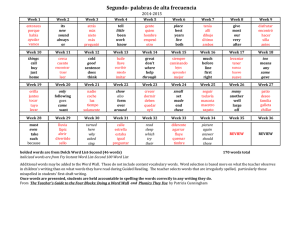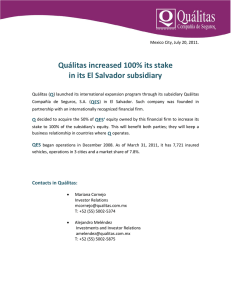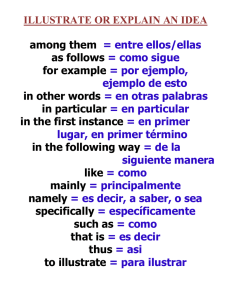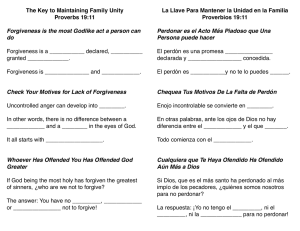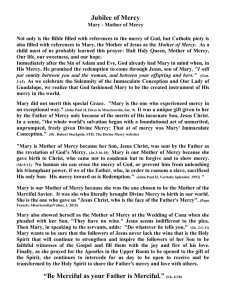In the Jubilee Year of Mercy - Piarist Fathers
Anuncio
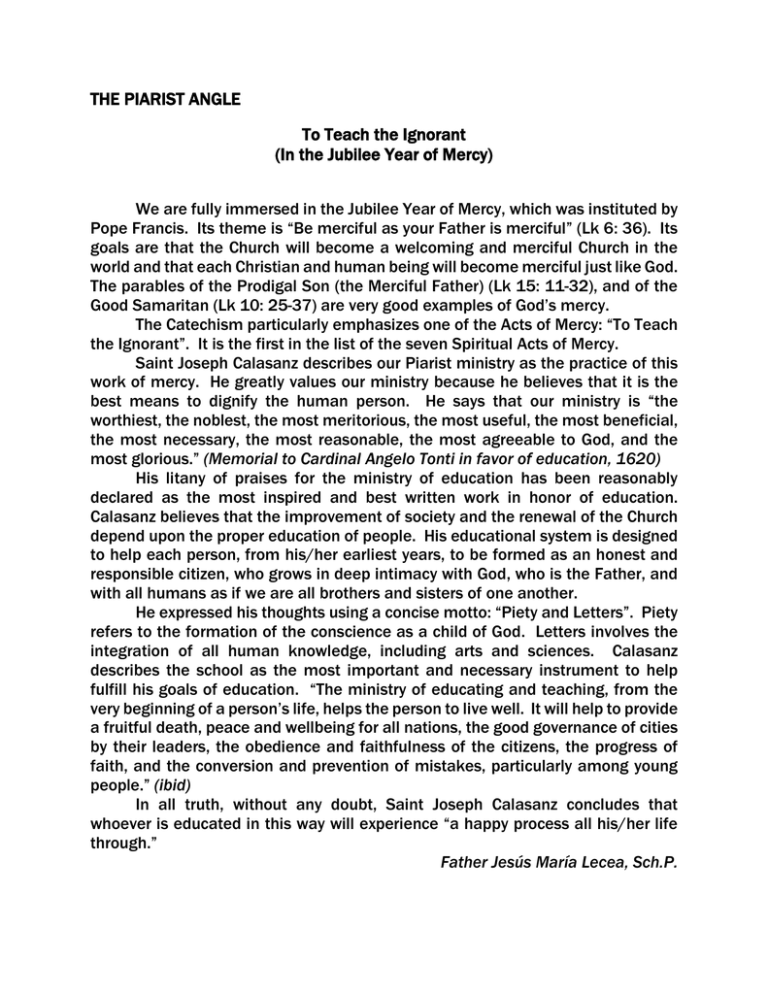
THE PIARIST ANGLE To Teach the Ignorant (In the Jubilee Year of Mercy) We are fully immersed in the Jubilee Year of Mercy, which was instituted by Pope Francis. Its theme is “Be merciful as your Father is merciful” (Lk 6: 36). Its goals are that the Church will become a welcoming and merciful Church in the world and that each Christian and human being will become merciful just like God. The parables of the Prodigal Son (the Merciful Father) (Lk 15: 11-32), and of the Good Samaritan (Lk 10: 25-37) are very good examples of God’s mercy. The Catechism particularly emphasizes one of the Acts of Mercy: “To Teach the Ignorant”. It is the first in the list of the seven Spiritual Acts of Mercy. Saint Joseph Calasanz describes our Piarist ministry as the practice of this work of mercy. He greatly values our ministry because he believes that it is the best means to dignify the human person. He says that our ministry is “the worthiest, the noblest, the most meritorious, the most useful, the most beneficial, the most necessary, the most reasonable, the most agreeable to God, and the most glorious.” (Memorial to Cardinal Angelo Tonti in favor of education, 1620) His litany of praises for the ministry of education has been reasonably declared as the most inspired and best written work in honor of education. Calasanz believes that the improvement of society and the renewal of the Church depend upon the proper education of people. His educational system is designed to help each person, from his/her earliest years, to be formed as an honest and responsible citizen, who grows in deep intimacy with God, who is the Father, and with all humans as if we are all brothers and sisters of one another. He expressed his thoughts using a concise motto: “Piety and Letters”. Piety refers to the formation of the conscience as a child of God. Letters involves the integration of all human knowledge, including arts and sciences. Calasanz describes the school as the most important and necessary instrument to help fulfill his goals of education. “The ministry of educating and teaching, from the very beginning of a person’s life, helps the person to live well. It will help to provide a fruitful death, peace and wellbeing for all nations, the good governance of cities by their leaders, the obedience and faithfulness of the citizens, the progress of faith, and the conversion and prevention of mistakes, particularly among young people.” (ibid) In all truth, without any doubt, Saint Joseph Calasanz concludes that whoever is educated in this way will experience “a happy process all his/her life through.” Father Jesús María Lecea, Sch.P. ANGULO ESCOLAPIO Enseñar al que no sabe (En el Año jubilar de la Misericordia) Estamos en el Año Jubilar de la Misericordia, instituido por el Papa Francisco con el lema “Sean misericordiosos como el Padre es misericordioso” (Lc 6, 36). Tiene por finalidad hacer de la Iglesia una Iglesia acogedora y misericordiosa para este mundo y de cada uno de los cristianos, y aún de cada ser humano, una persona misericordiosa al estilo de Dios. Iconos muy expresivos de esta misericordia son las Parábolas evangélicas del Hijo Pródigo o del Padre misericordioso (Lc 15: 11-32) y del Buen Samaritano (Lc 10: 25-37). Entre las Obras de Misericordia que señala el Catecismo, “Enseñar al que no sabe” es la primera, que encabeza la lista de Obras de Misericordia espirituales”. San José de Calasanz identifica el ministerio escolapio como la práctica de esta Obra de misericordia y lo valora, por ser la mejor ayuda a la dignificación de las personas, como “el ministerio más digno, el más noble, el de mayor mérito, el más beneficioso, el más útil, el más necesario, el más natural, el más razonable, el más premiado por Dios, el más atractivo y el más glorioso” (Alegato al Cardenal Angelo Tonti en favor de la educación, 1620) Esta letanía de calificativos altamente laudatorios de la educación ha sido nombrada, con razón, como el magistral y más inspirado himno a la educación de todos los tiempos. En el bien educar pone Calasanz la mejora de la sociedad y la renovación de la Iglesia. Su sistema educativo mira a ayudar a la persona, comenzando en su temprana edad, a formarse como ciudadano honesto y responsable, unido a crecer también como buen hijo de Dios y hermano universal de todos. El lo expresó en un lema lapidario: Piedad y Letras. Piedad, como formación en la conciencia de ser hijos de Dios y Letras, en como cultivo de todos los saberes humanos, literarios y científicos. Como instrumento inmejorable y necesario puso la escuela. “Este ministerio (el de enseñar y educar), desde el principio de la vida, enseña a bien vivir, de donde depende el bien morir, la paz y sosiego de los pueblos, el buen gobierno de las ciudades y de los príncipes, la obediencia y fidelidad de los súbditos, el progreso de la fe, la conversión y prevención de los errores, particularmente entre los jóvenes” (ibídem). Con toda certeza y sin lugar a dudas, concluye el Santo, en quien se haya educado así se dará “un feliz transcurso de toda la vida”. Padre Jesús María Lecea, Sch.P.
